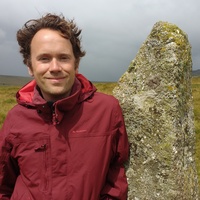
Jelle Bruning
Jelle Bruning specializes in the social history of early Islamic Egypt (ca. 640-1000 CE). He works extensively with documentary sources in Arabic, Coptic, and Greek and contemporary literary texts. He currently works on a critical edition, translation and study of Ibn al-Sabbagh's (ابن الصباغ) late tenth-century treatise on Alexandria's religious virtues (فضائل الاسكندرية).
Phone: +31 71 527 1396
Phone: +31 71 527 1396
less
Related Authors
Roy van Beek
Wageningen University
Hanno Wijsman
Centre National de la Recherche Scientifique / French National Centre for Scientific Research
Rick Honings
Universiteit Leiden
Siegfried Huigen
University of Wroclaw
Jeannette E Koch
Università Degli Studi di Napoli "L'Orientale"
Wilco Versteeg
Radboud University Nijmegen
Jaap Evert Abrahamse
Cultural Heritage Agency of the Netherlands
Lut Missinne
University of Münster
InterestsView All (34)







Uploads
Books by Jelle Bruning
Papers by Jelle Bruning
that records a woman’s debt of a third of a dinar. It is the oldest preserved original of its
kind. A study of the formulary of this document and contemporary copies of similar
documents reveals a hitherto overlooked validity clause which states that the recorded
financial transactions are in accordance with ‘the normative procedure of the believers’
(sunnat qaḍāʾ al-muʾminīn). This clause gives documentary evidence for the existence of
ideas about legal identity among the Muslim community in Egypt as early as the beginning of Umayyad rule.
that records a woman’s debt of a third of a dinar. It is the oldest preserved original of its
kind. A study of the formulary of this document and contemporary copies of similar
documents reveals a hitherto overlooked validity clause which states that the recorded
financial transactions are in accordance with ‘the normative procedure of the believers’
(sunnat qaḍāʾ al-muʾminīn). This clause gives documentary evidence for the existence of
ideas about legal identity among the Muslim community in Egypt as early as the beginning of Umayyad rule.
This lecture discusses a tenth-century CE book devoted to Alexandria’s place in Islamic sacred geography. This book is not only one of the main sources for Muslim views of Alexandria, it is known to have remained popular for centuries. The lecture will first introduce the audience to the book and its author. It will then focus on two important themes the book addresses: Alexandria’s connection with the activities of Dhu al-Qarnayn and the prophet Muhammad’s alleged visit to the city during his night-journey. These themes illustrate how medieval Muslims dealt with Egypt’s pre-Islamic past and argued for its significance in the present.